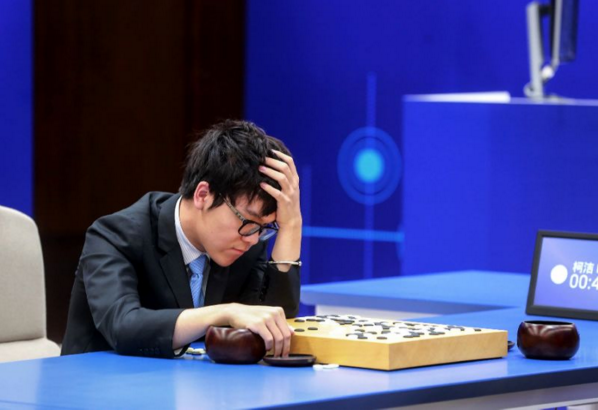
The Google-owned computer AlphaGo is retiring from playing humans in the ancient Chinese game of Go after roundly defeating the world's top player this week, its developer said on Saturday.
AlphaGo defeated the 19-year-old world number one Ke Jie of China on Saturday to sweep a three-game series that was closely watched as a measure of how far artificial intelligence (AI) has come. AlphaGo last year became the first computer programme to beat an elite player in a full Go match, and its success has been hailed due to the game's difficulty.
AlphaGo has a great number of moves, and it also has the human-like "thinking" and strategy. But this week's contests in the eastern Chinese city of Wuzhen were its last, said DeepMind Technologies, the London-based AI company that developed AlphaGo and which Google acquired in 2014.
In a blog post, DeepMind founder Demis Hassabis said AlphaGo's developers will turn to "the next set of challenges, developing advanced general program that could one day help scientists as they work out some of our most difficult problems". These could include "finding new cures for diseases, dramatically reducing energy consumption, or inventing new materials," he said. "If AI systems prove they are able to discover significant new knowledge and strategies in these fields too, the breakthroughs could be truly remarkable. We can’t wait to see what comes next."
Go involves two players laying black and white stones on a grid, trying to capture the most territory. Invented nearly 3,000 years ago in China, it is played worldwide but most popular in East Asia. Top players have been interested in AlphaGo, describing its play as groundbreaking and opening up new ways of approaching the game. Likewise, AlphaGo's success has fuelled visions of AI that can not only perform pre-programmed tasks, but help people look at complex scientific, technical and medical mysteries in new ways. AlphaGo's "thinking" is powered by millions of connections similar to neurons in the brain. It is partly self-taught, having played millions of games against itself.
本时文内容由奇速英语国际教育研究院原创编写,未经书面授权,禁止复制和任何商业用途,版权所有,侵权必究!(投稿及合作联系:028-84400718 QQ:757722345)
1.Why did AlphaGo play with Ke Jie?
A Because people wanted to know artificial intelligence clearly.
B Because the world number one Ke Jie of China wanted to win.
C Because AlphaGo became the last computer program to sell.
D Because a number of people wanted to watch the game closely.
解析:选A。细节理解题。根据第二段第一句的that was closely watched as a measure of how far artificial intelligence (AI) has come可以得知这场比试是为了检测人工智能的发展。故选A。
2.What made people interested in the match?
A AlphaGo has the computer games.
B AlphaGo has a great number of moves.
C The game is difficult to play.
D The game is only played in China.
解析:选C。细节理解题。根据第二段最后一句的and its success has been hailed due to the game's difficulty可以得知是因为围棋的难度才让很多人感兴趣的。故选C。
3.What can the future advanced general program do?
A It can remember the new knowledge.
B It can make use of the strategies.
C It can help us use energy effectively.
D It can set a lot of breakthroughs.
解析:选C。推理判断题。根据第四段第二句的These could include “finding new cures for diseases, dramatically reducing energy consumption...”可以得知新开发的下一代机器人能提高能源的使用效率。故选C。
4.Why was AlphaGo so clever?
A Because it was made up of millions of connections.
B Because top players have been interested in AlphaGo.
C Because AlphaGo became most popular in East Asia.
D Because it played millions of games with other computers.
解析:选A。细节理解题。根据文章最后一段中的AlphaGo's "thinking" is powered by millions of connections similar to neurons in the brain可以得知是由于类似人脑神经元的部分才让阿尔法狗这么聪明的。故选A。